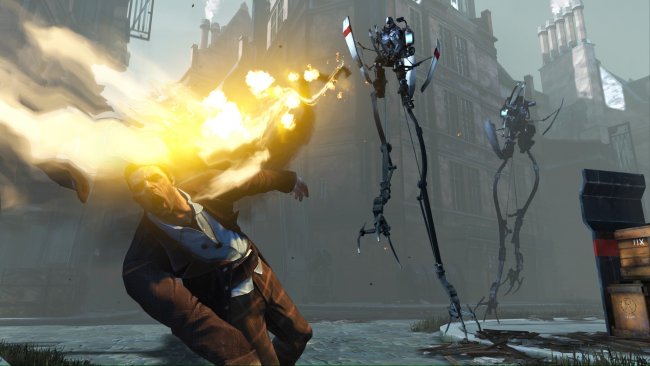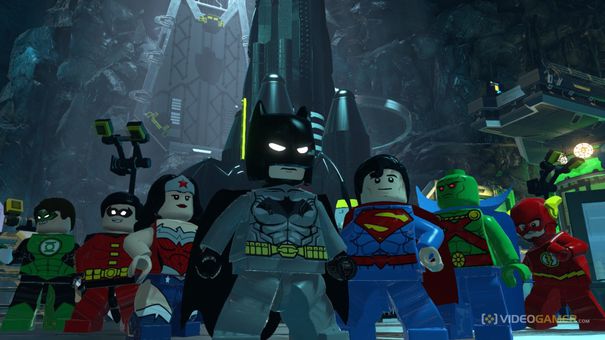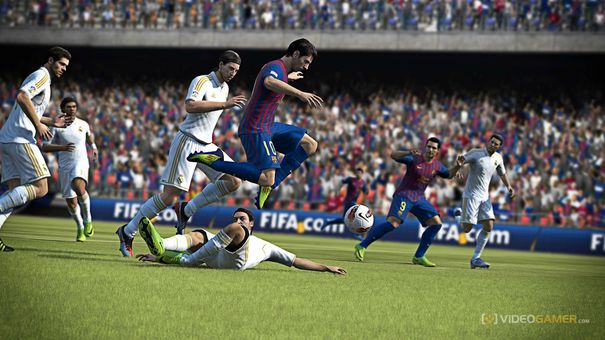

It's the richness of the world that sets Dishonored apart from other games. Dunwall is a dark and grimy place, infested with plague and death. Soiled. Broken.
We steer Corvo through its murky underbelly, meting out justice with our dagger, protected by an imposing mask and a series of escalating supernatural powers. On his journey he is framed for a murder he did not commit, joins forces with an underground movement, and slinks through a variety of detailed and carefully observed locations as his story veers towards its dramatic conclusion.
Our man is the former bodyguard of the Empress, so he's more than handy in a scrap. Unfortunately he's not able to save her when assassins come a calling, or prevent them from stealing her daughter and heir. Of course he's framed for the deed. After his escape from incarceration, and a visit from The Outsider in a dream, he becomes imbued with powers that make him an even more fearsome adversary.
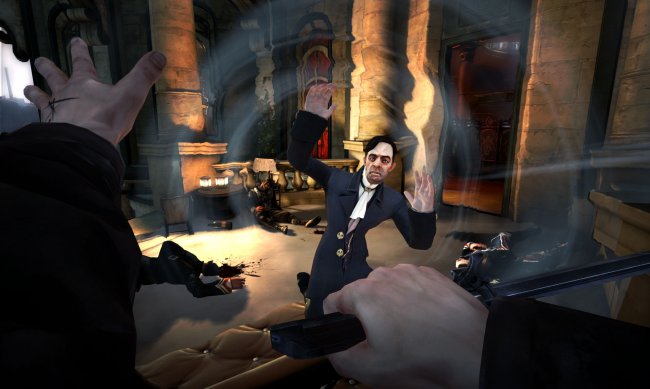
There's two different moral positions that can be pursued. I opted for non-lethal means wherever possible. This choice is expressed in both micro and macro. Guards can be spared, NPCs avoided. Buried in each environment is a path of least resistance waiting to be exploited. Similarly, main quests can be met with similar measures of mercy. Arkane gives us the choice throughout, our actions highlighted in the ending handed to us at the game's end.
Corvo interacts with the world around him in a way that allows people to label Dishonored as an immersive sim. He peeks round corners, climbs up chains, jumps, swims, creeps across lofty ledges, and scurries through tunnels. There's multiple routes through each area, and we're constantly encouraged to think before we act. We might be a deadly assassin when lurking in the shadows, but out in the open Corvo is surprisingly vulnerable.
When he's not doing his sneaking thing, Corvo silently listens on as characters talk him through the events transpiring all around. The visual style of the NPCs strikes a particular tone; painted with a colour palette that screams corruption and excess. Gaunt and harrowing. Placed in their natural habitats, undertones of debauchery and immorality permeate from their every pore.
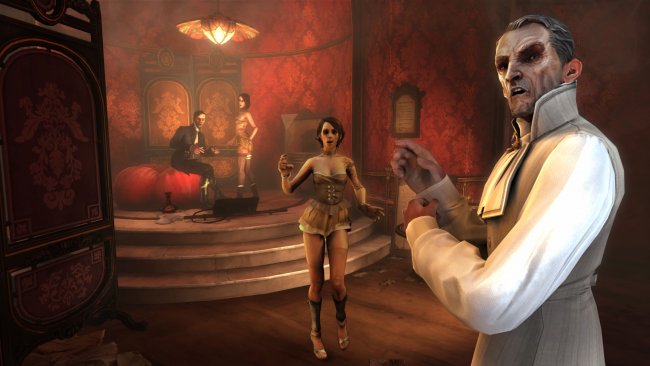
The steampunk stylings snuggly wrap around the narrative, giving context to the tale, and justification to your actions. This is a terrible place. Capable of warmth and humanity, but spoiled by tyranny and avarice. Corvo can change things, his actions - your actions - are important. There's a difference to be made; change is in the wind.
Startling architecture looms on every horizon, industrial and cold for the most part, but also ornate and extravagant in the dwellings of those aristocrats who hold themselves above the common men and women of the city. The level design purposefully encourages exploration and experimentation. The buildings become more than just pillars of an ongoing industrial revolution, they become climbing frames, vantage points, obstacles. The beautifully decorated grand houses stop being something artful to admire, turning instead into labyrinths to navigate, and places to conceal deadly intent.
The powers earned over the campaign increase your tactical options, not only in battle, but in how you can traverse the different environments. Possessing a rat allows Corvo to squeeze through small vents, and Blink brings previously unobtainable ledges within reach. They also add a layer to combat, giving choices that extend beyond the traditional cut and thrust of swordplay, and the guard-drawing crack of a pistol fired in desperation.
Corvo's unique abilities may inform the experience, but it's the city of Dunwall that is the real star of the show in Dishonored. The city's denizens, the bold architecture, the alternate paths; all combine to create a unique setting for players to immerse themselves in. The pull of Dunwall is so strong that a few cliched twists and turns in the narrative are easily forgiven. We can't wait to go back for another visit when Arkane gets round to giving us a sequel, and despite the grime and murk of the setting, another trip there is one we're eager to take.
